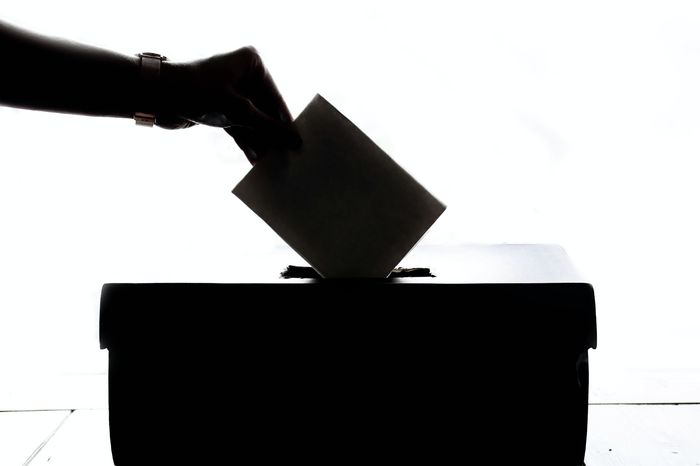Controversial ex-CUCA chair becomes Home Secretary
Suella Braverman, a right-wing Tory MP with a history of controversy stretching back to her time at Cambridge, is now responsible for our national security

If CUCA hacks are disappointed by the emergence of yet another prime minister from the other place, they can at least draw comfort from the subsequent elevation of one of their own to high office.
On Tuesday (6/9), Suella Braverman, a former Cambridge University Conservative Association chair, became Home Secretary.
Braverman, who is firmly on the right of her party, studied law at Queens’ College in the late 1990s and early 2000s before training as a barrister.
The cabinet minister, who was first elected to parliament in 2015, is not known for playing things safe.
In May 2000, Cambridge’s budding politicos and media hacks were sent scrambling when Varsity ran the headline “Conservatives in corruption crisis” alongside a photograph of Braverman.
The article reported an allegation that Braverman had attempted to buy a student’s vote when standing for the role of CUCA chair.
This prompted a fierce denial, printed in the paper’s next edition, with the aspiring politician pointing out that the story was sourced from Liberal Democrat activists — and that accusations of vote-buying were ludicrous, since she was standing unopposed.

This response was somewhat sheepishly accompanied by the headline: “Conservatives not in crisis”.
Braverman has continued this bold approach into her professional political career.
In an interview with The Times earlier this year, in which she praised JK Rowling’s stance on trans rights, she described her attitude to criticism on social media, saying: “If I get trolled and I provoke a bad response on Twitter I know I’m doing the right thing. Twitter is a sewer of left-wing bile”.
The former Attorney General is not the first CUCA alumna to rise to political prominence.
In the 1980s and 1990s, numerous former members of the Association rose to senior Cabinet positions under Margaret Thatcher and John Major.
The resultant group became known as the ‘Cambridge Mafia’, and included Ken Clarke, Norman Fowler, Michael Howard, Norman Lamont and Leon Brittan.
Former Lib Dem leader and deputy prime minister, Nick Clegg, was also allegedly a CUCA member from 1986 to 1987, although he has said he has “no recollection of that whatsoever”.
Despite these high-profile alumni, no CUCA member has yet gone on to become prime minister.
Nonetheless, Braverman is not the only Cambridge-educated Conservative to hold high office under Truss.
Kwasi Kwarteng, our new chancellor of the Exchequer, attended Trinity College in the 90s, after graduating from Eton. He took a double first in History, before going on to do a PhD on the recoinage crisis of 1695–7.
Kwarteng steered clear of politics while at Cambridge — but he was a member of the controversial Pitt Club, a dining club which at the time was not open to women.
In 2020 The Guardian reported that Kwarteng enjoyed his time at the club so much that he had gone back for a drink on at least one occasion after he graduated.
Mysteriously, the then-junior minister was unavailable for comment when The Guardian reached out.
 Comment / Cambridge students are too opinionated 21 April 2025
Comment / Cambridge students are too opinionated 21 April 2025 Interviews / Meet the Chaplain who’s working to make Cambridge a university of sanctuary for refugees20 April 2025
Interviews / Meet the Chaplain who’s working to make Cambridge a university of sanctuary for refugees20 April 2025 News / News in brief: campaigning and drinking20 April 2025
News / News in brief: campaigning and drinking20 April 2025 Comment / Cambridge’s tourism risks commodifying students18 April 2025
Comment / Cambridge’s tourism risks commodifying students18 April 2025 Comment / Does the AI revolution render coursework obsolete?23 April 2025
Comment / Does the AI revolution render coursework obsolete?23 April 2025





